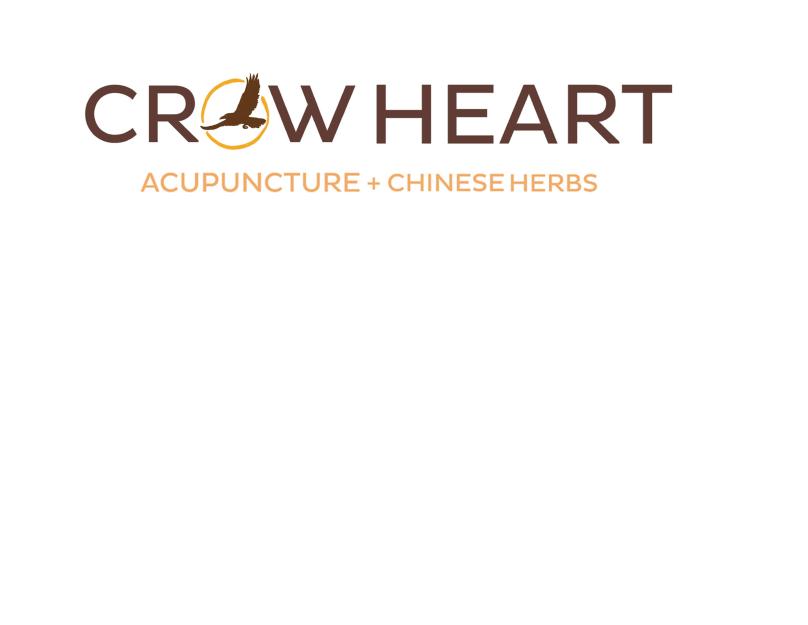I love being an acupuncturist and herbalist. I have a genuine and deep affection for the people who come to see me. Frankly, I love them all. A common theme, no matter who I am treating, is dealing with, and recovering from, stressful situations. There is a lot of suffering we human beings bear. I am writing this post for the many people who have shared their stories of heartbreak, fear, worry, and stress with me. I hope it helps.

“Take Care of Yourself”
I have a patient who was born outside of the United States. She recently told me that the phrase “Take care of yourself,” which we often say to each other when someone is going through a hard time, doesn’t exist in her culture of origin. She has asked around and her friends from outside the US agree — they don’t have a similar phrase either. The awakening I had upon hearing that this phrase is uniquely American revealed a lot of hard truths about our culture and what we expect of ourselves and each other. “Take care of yourself” has an unspoken message — take care of yourself, because no one else will be there for you.
Here in the states we value our independent nature; we pride ourselves on leaving home, “standing on our own two feet,” picking ourselves up by our bootstraps, being self made, going it alone, doing it all by ourselves, being a pillar of strength, coming into your own…the list of idioms is a long one. The implied message is if you are not strong enough to do it all by yourself, something is wrong with you. And god forbid you ask for help.
Some of us are fortunate to have family and friends we can rely on to help us through the rough patches, but asking for help does not come easily for many of us, and often comes with a heavy dose of guilt and shame, either from ourselves or others, when we ask for help. Such a strange value for a profoundly social species. The truth is we need each other, and rely on each other in all sorts of ways–it is nothing to be ashamed of! It’s beautiful, actually.

Part of this blog post is intended to question the cultural value that we should be able to do everything all by ourselves–to rid ourselves of the shame and guilt of needing, wanting, or asking for help. Given that this cultural value is deeply rooted and change doesn’t come easy, the other goal of this post is to provide some tips for steps we can take to do exactly that — how do we take care of ourselves when life presents us with overwhelming challenge?
Whether it’s a chronic, debilitating, life threatening illness we are struck with, or one of those life events that requires more emotional resources than we might have (births, deaths, divorces, job loss, financial stress, or simple overwhelm, etc.) here is a list of things that may help get you through with more ease.
First, some things to keep in mind:
- As the buddhists say, life is suffering. No matter what you see on Facebook, everyone has problems. It’s the nature of being alive. No one makes it through without receiving their share of challenges. You are not alone.
- Like the tides, life’s challenges ebb and flow. There will be easier times and harder times. Nothing — good or bad — lasts forever.
- We all have differing abilities to handle stressors. Some of us have a healthier stress response than others. When dealing with multiple stressors, our threshold for what we can handle tends to diminish, so the smallest thing might “set us off.”
- The stress response, biologically, is intended to be helpful. It is damaging to us only when it is prolonged. If you can learn to stop it in its tracks, you will benefit greatly.
Ways to improve your stress response:
SELF TALK
1. Cut the negative, berating self talk. It is not helpful. One trick I came up with years ago I call “Pretend You are Your Own Best Friend.” Our inner voices can be very harsh, judgmental, and downright mean spirited. Would you ever speak like this to someone you truly cared about? I’m guessing not. If you were your own best friend, what would you say to yourself? What advice would you give? What messages would you send? Listen to that voice, and follow its advice instead.

2. Along those same lines, re-evaluate the story you are telling yourself and get some perspective. For example, I know someone who from an outside perspective “has it all” yet still feels like a failure because he has not yet accomplished everything he thinks he should have in life. Pay attention to the positive stuff. We all are exactly where we are and where we need to be. No amount of putting ourselves down is going to change the past, and no matter of blaming anyone will improve the past. Congratulate yourself for surviving your hardships, for what you have learned, for the love you have given and received. You are not a failure. You are a precious human soul.
3. For perspective, look up at the stars. We are each a very small piece of the larger universe. At the end of the day, does the problem you are beating yourself up about really matter? Forgive. Make amends. Do your best. And let it go.

TAKING ACTION
One common response to stressors is stress — the sympathetic nervous system kicks on the fight or flight response. Long term, stress can create a very hostile environment in our bodies, and I believe is at the root of most dis-ease. The opposite of the fight or flight response is “rest and digest.” When we are in rest and digest mode, the parasympathetic nervous system has turned on. This is why your stomach often starts to grumble on the acupuncture table. It’s a good thing! Besides acupuncture, how do you activate rest and digest? Here are some tools:
1. BELLY BREATHE. Take a few deep breaths at a comfortable pace. Allow your belly to push out with each breath. This sends your body the signal that everything is okay, and can kick on the “rest and digest” response. I think it’s a good idea to set a tone to go off every hour, no matter what you are doing, so you can stop and take three deep breaths.
2. EAR MASSAGE. Give yourself an ear massage. The ear contains acupuncture points for the entire body. Gently pulling on the outer part of your ears from the top to the lobe is quite relaxing. You will probably feel a warming sensation, and will likely take a deep breath, kicking on the parasympathetic nervous system. If you suffer from insomnia, doing this at night, and using sesame oil on your ears, is an old Chinese Medicine trick to induce rest.
3. MEDITATE. Pray. Chant. In the Bay Area there are plenty of places to learn to do these things with support. Meditation cuts into worry time for one, and prayer or chanting can give your mind a rest from negative self talk and worry for awhile. One simple meditation is simply to close your eyes and focus on the breath coming out of your nose for five minutes. It’s not as easy as it sounds, but gets easier with practice. For added benefit, say a prayer of good wishes for someone else–it will get you out of your own problems and help you to feel open hearted.

4. EXERCISE. You don’t have to run a marathon to get benefits from movement. If you are physically debilitated, you can even just imagine doing the exercise — research shows your body still gets some benefits just from imagining! The exercise you choose doesn’t have to turn you into iron man or a supermodel. It can be a slow walk around the block, or tai chi in the park, or a walk with the dog.
Here is an extremely inspirational video about an obese man with diabetes and low self esteem who changed his life completely through love and exercise.
https://www.youtube.com/watch?v=Rm0qYRWQpZI
5. GO OUTSIDE. If possible, it does help to exercise outdoors, or spend some time in nature. This could be as simple as growing a houseplant, or looking out your window at the sky, rain, birds, or trees, catching the sunrise/sunset, or taking a hike in the woods, or going on a camping trip. Nature offers some of the best medicine.

6. SELF CARE. If you can afford to, invest in some self care every week or every month — as often as you can or need. Acupuncture treatments, massage, energy work, etc., all can help get you out of the stress response.
7. HERBAL MEDICINE. Take herbs and supplements. They can be very very helpful to rebuild your energy reserves and get you back in balance so you can handle life’s stressors better. But please, do not self prescribe!!! We tend to think of herbs as harmless, like eating a sprig of parsley. But the wrong herbs in the wrong dosage can cause very big problems. (A recent herb that is in fashion is turmeric. There are cure all claims for it, and since it’s a cooking spice, we think of it as harmless. But people are taking massive daily doses of the stuff. I know two people who self prescribed turmeric and it caused huge problems with their gallbladders. One person had to have her gallbladder removed because of it. In Chinese herbal medicine, herbs are usually prescribed as part of a balancing formula of several herbs, and taken at a specific dose for a certain length of time, and are specific to your particular pattern. Even cooking spices taken without respect for their power can cause huge problems!)
8. EAT MINDFULLY. When stressed out, we tend to consume too much sugar, alcohol, fast foods, and comfort foods. In the short term it seems to help, but in the long term causes big problems. Keep the sugary snacks out of the house. Good digestion is imperative for healing. Stress is harmful for digestion. Stress when you are eating is even worse, so:
- eat at regular times
- eat slowly.
- chew.
- enjoy your food.
- eat organic when possible.
- eat seasonally when possible.
- eat easy to digest and appetizing foods.
- set the table nicely. put some flowers on the table.
- use your crock pot.
- try to include diversity in your diet.
- eat a lot of vegetables. slightly cook them.
- if you do indulge in something that’s “bad for you” eat it with pleasure and lose the guilt. It just makes it worse.

9. BE GRATEFUL. Keep a gratitude journal where you keep track of people, places, things, you appreciate. Say thank you. Out loud. To someone.
10. REST. Take naps. Have downtime. Say no to stuff you don’t have the energy for. If you have trouble sleeping, get acupuncture, take herbs, do the ear massage described above. Avoid caffeine. Focus on your breathing. Give 100 strokes to the bottom of each foot with the knuckles of your hands. Go to sleep thinking about what you are grateful for.
11. PROTECT YOUR MIND. Avoid toxic news and poisonous people. We can’t live in a bubble, but when you are in a particularly stressful time, being around someone who is complaining all the time is like poison. Watching the news is like poison. Sign up for a daily email from the Good News Network, or the Center for Greater Good at UC Berkeley, or a daily meditation or prayer from the spiritual source of your choice. Look at pictures of baby animals — as dorky as this sounds, there is actually research that found that looking at puppies and kittens improved mood, concentration and focus. They help you to smile.

12. GROUND YOURSELF. I often do energetic qi gong assessments before inserting needles into someone for acupuncture. Very often I find that people hold their energy in and above their heads, instead of below the navel. Taking deep breaths, and imagining glowing light below the navel can help bring that energy down, so you can re-enter your body, and get out of the worried mind. Likewise, you can imagine roots, like tree roots, or roots made of light, growing down from tailbone and deep into the earth. Walking barefoot and putting “your mind in your feet” can also help to ground you in your body, on this earth in the present moment. Be careful with energy work, and any energy practices that are intended to bring your energy “up.” As the Tibetans say, we humans have a very easy time bringing the energy up, so we don’t have to work at that. Work at pulling your energy down into your core, into your feet. If you have trouble sleeping, another trick is to imagine you are breathing through a point on the bottom of your feet.

As someone who is just learning that asking for, and receiving, help is okay, many of these techniques have gotten me through some of the roughest patches of my life. I have seen many of them help a number of patients as well. We all struggle and suffer. But the suffering and struggling can be eased through taking care of one another, thinking with our hearts, being kind, helping each other out. And when you are feeling alone, and afraid to ask for help, this list provides some ideas to try so you can take care of yourself like your own best friend.
13. ASK FOR HELP! Much love and healing to you. I am here to help. Don’t be afraid to ask! You can set up an appointment with me at my clinic on Telegraph Avenue in North Oakland, or in Albany, just off of Solano Avenue, by emailing Frances Wocicki at crowheartacupuncture@gmail.com, or by calling 510-919-5689. Visit me on the web at http://www.crowheartacupuncture.com.
